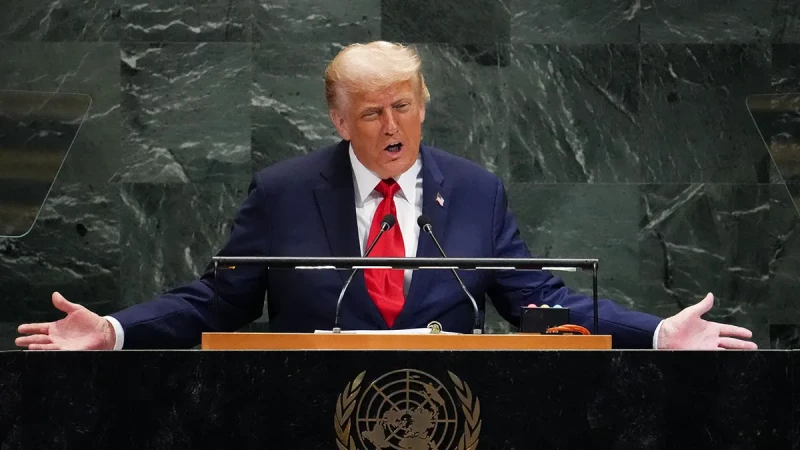Why hasn’t the democratic nation applied its own principles and adopted them fully? Have democratic theories failed in practical application? Why have feminist theories not succeeded in achieving leadership positions, particularly in the United States? These questions may appear simple and easy to answer, yet in truth, they expose theoretical and practical contradictions that lead us into an open discussion about fundamental assumptions. This is particularly relevant to the assumption of “women and peace,” a key feminist theory in leadership and international relations, and the notion that war is a primary driver of both victory and loss.
This dynamic is visible when observing the American electoral experience over two separate periods, both of which illustrate the convergence of women and war. In the 2016 US presidential elections, the Syrian crisis was among the key issues shaping the policies and priorities of the candidates in the race. This included former Secretary of State (Hillary Clinton) under President Barack Obama, and the Republican candidate, businessman (Donald Trump).
Clinton, Harris similarities
Despite the differences in time period, events, and changes in the nature of key issues between the 2016 and 2024 elections in America, these periods exhibit similar dynamics: a female candidate versus a male one, with the female candidate being part of the decision-making apparatus and within the administration, while the male candidate is outside of the administrative or bureaucratic system of the United States. This dynamic - one man and two different women - adds an interesting element to the electoral race and to the democratic process itself. This is reflected in Clinton's struggle to gain support as the first female presidential candidate, as well as in the significance of Harris as a crucial alternative in leading the Democratic Party.
Despite Harris’s efforts to distance herself from Clinton’s approach as much as possible, particularly on issues of race and gender, and as the first woman to be nominated for the presidency, they share many concerns. Both are invested in women’s rights; this is evident, for example, in Harris’s endorsement of abortion rights and Clinton’s deeply emotional talk about women’s rights during the Democratic Convention for Harris. Additionally, both women have held prominent leadership positions - one as Vice President and the other as Secretary of State - and were present within the US administration during critical periods of conflict in areas of American influence: the Syrian crisis in 2016 for Clinton and the events of October 7 for Harris.
Democratic US administrations have been criticized for increasing the activity of extremist movements and for poor management of foreign crises, particularly armed conflicts that have occurred.
Syria leads Clinton to loss
Foreign policy plays a pivotal role in the US election race, especially during times of conflict or ongoing wars in America's regional or global areas of influence and interests, particularly the Middle East. In 2016, the Syrian crisis and its consequences influenced the electoral race, which featured a woman against a man and peace versus force. However, the situation took an unexpected turn. Clinton's campaign speeches revealed a strong stance on war, advocating for the use of weapons and force to achieve democracy. She openly called for using military force against the Syrian regime and for significant US intervention in the political process to bring about democracy. She also supported the idea of establishing a no-fly zone to limit the Syrian regime's power.
In contrast, Trump’s rhetoric prioritized eliminating ISIS and minimizing the threat it posed through tactical operations rather than intervening in Syria's complex political conflict between the regime and opposition forces. He also sought to avoid direct confrontation with Russia, which supported the Syrian regime. Many analysts considered Clinton’s rigid stance on the Syrian crisis as one of the reasons for her defeat to Trump in 2016, as her position could have led to further US losses and contradicted the idea of peace. This loss came in the wake of the US failure to achieve positive democratic change through the use of force or military interventions, as seen in Iraq and Afghanistan, and with signs of failure emerging in Syria as well. Clinton's political legacy is marked by her traditional approach of supporting American political and military interventions in Libya, Iraq, and Afghanistan, an approach that had angered the American public.
Did Harris know this?
Since Biden took office as the US president with Harris as his vice president, there have been major issues for them to address, most notably the Russia-Ukraine war. Early in the war, Biden assigned Harris to the diplomatic front, directing her to rally Western support against Russia, with her first major task being a meeting with French President Emmanuel Macron. Since the events of October 7, Harris has not deviated from Biden’s approach to handling war and conflict, even after her formal announcement as a presidential candidate to succeed Biden. Her speeches and positions have remained aligned with Biden’s policies in managing conflicts, a policy that has been widely questioned, particularly for its reluctance to fully engage in or conclude wars while still providing support for warfare.
In the Gaza war, Harris has been part of an administration that supports Israel comprehensively while simultaneously affirming support for Palestinians and their rights. Harris’ approach has been diplomatic and in line with Biden's strategy of quietly supporting Israel behind closed doors while publicly criticizing Israel in her campaign speeches. Harris did not pledge to end any wars. As a candidate, she sought to attract progressive Democrats and Arab-American voters in swing states by balancing both sides of the conflict, addressing the humanitarian aspects alongside security concerns. However, many of these groups see the administration, of which Harris is a key part, as having failed to effectively manage or contain conflicts or to deliver reliable solutions to crises or humanitarian support, as it claims.
Ending war became a significant priority for voters, a point Trump capitalized on in his rhetoric. His strategy involved criticizing the Biden-Harris administration’s handling of conflicts, reaffirming his unwavering support for Israel, and promising to bring an end to war. This stance likely motivated many Jewish or Israeli-American voters to support Trump over Harris, especially in Michigan and Pennsylvania, key battleground states where Harris tried to inspire hope.
In conclusion
It may be a coincidence or a twist of fate that two women have run for office at different times, yet under similar circumstances, events, administrations, and crises. This high level of similarity has made comparisons between them inevitable, especially in their approaches and the disproportionate burdens placed on them due to the administrations they were part of. Thus, Biden’s withdrawal from the presidential race and his support for Harris’s candidacy can be seen as both an opportunity and a poisoned chalice, a dual-edged gift that heavily influenced voters and political directions.
After Harris’s candidacy, for example, Biden had taken different stances, both in private and public discussions, distancing himself from her statements on the Middle East crisis, prompting Harris to try to align with him. Harris’s handling of issues based on humanitarian and broad security principles, especially regarding women and children, was evident in the files she directly managed, such as immigration and the war in Gaza. However, these feminist-driven commitments were not enough to boost her support significantly. Voters increasingly lean toward the conservative candidate who focuses solely on domestic interests, unlike Harris, who linked humanitarian considerations to security concerns, as seen in her approach to immigration and the Gaza conflict. She believed that these groups significantly impacted local security, but this perspective did not resonate with many voters.
The views expressed in this article are those of the writer and do not necessarily represent the position of The New Region



 Facebook
Facebook
 LinkedIn
LinkedIn
 Telegram
Telegram
 X
X


